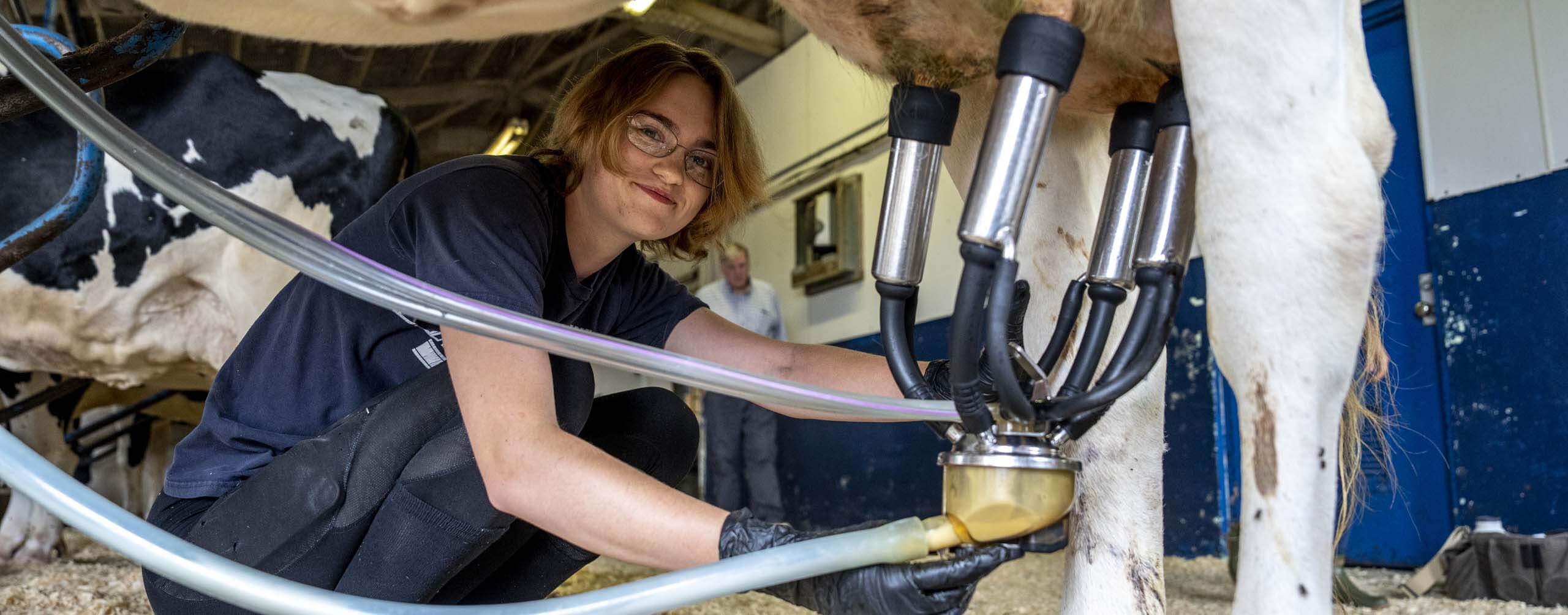
Animal and Veterinary Sciences
College of Earth, Life, and Health Sciences
Animal and Veterinary Sciences is recommended for students who wish to pursue careers in animal agriculture, including the dairy, livestock, or equine industries or other aspects of animal related research. It provides a solid understanding of biological sciences along with specific expertise in the diseases, breeding, nutrition, and physiology of domestic and laboratory animals. The pre-veterinary concentration prepares students to apply to colleges of veterinary medicine.
UMaine’s Animal and Veterinary Sciences program offers a degree in Animal and Veterinary Sciences with an optional concentration in either Equine Science or in Pre-Veterinary Sciences. The animal science degree is recommended for students who wish to pursue careers in animal agriculture, including the dairy, livestock or equine industries. Animal science courses also serve as elective opportunities for students in other agricultural and life sciences, and minors are available in animal and veterinary sciences or in equine studies.
The pre-veterinary concentration is recommended for superior students who seek admission to veterinary colleges. Suggested courses beyond the basic degree requirements in animal and veterinary sciences are those that are required or recommended for admission to colleges of veterinary medicine in North America.
An important aspect of the degree in Animal and Veterinary Sciences (AVS) is the requirement for hands-on experience with economically important domestic species. At the University’s Witter Center, AVS majors are given numerous opportunities to increase their competency with, and eventually manage, dairy cattle, and Standardbred horses. We consider the experiential learning at the Witter Center to be a vital part of our students’ education, because it allows them to use their knowledge to solve practical problems on a working farm. Pre-veterinary students need 300 hours of field experience working with one or more veterinarians for their application to veterinary college. Alternatively, animal science students complete a field experience of at least 320 hours related to their potential career interests, such as an internship on a sheep farm, a zoo, or working at a veterinary clinic.
With the degree comes a variety of career opportunities which include: veterinarian or medical doctor (after successful completion of veterinary or medical school), technical sales and service work in animal agriculture, laboratory animal technician/ manager, dairy or livestock farm employee, equine boarding or training stable employee, food processing industry employee, Positions with Cooperative Extension, livestock feed and drug sales personnel, agribusiness loan organization staff, agricultural consulting company staff, humane care associations employee, educator, and dog groomers and trainers.
Dr. Tim Bowden
Associate Professor of Aquaculture
Rogers Hall, Room 205
207.581.2772 | timothy.bowden@maine.edu
Animal and Veterinary Sciences
College of Earth, Life, and Health Sciences
Rogers Hall, Room 201B
207.581.2768 | um.foodandagriculture@maine.edu
